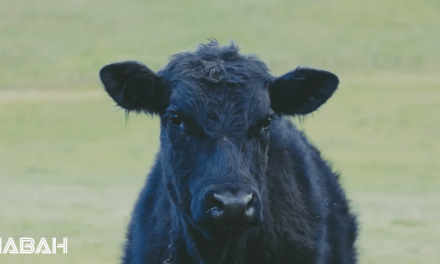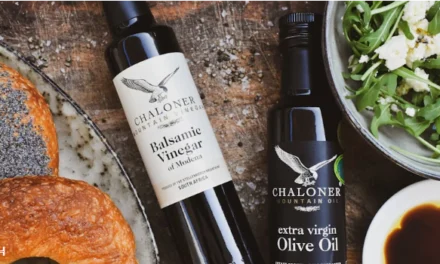As a consumer who values both my faith and the quality of the products I consume, I was shocked to discover the hidden truth about carmine, a common ingredient found in food and non-food items. In this article, I aim to shed light on the halal dilemma surrounding carmine, revealing the facts that every conscientious Muslim should be aware of.
Unveiling the Truth about Carmine in Food and Non-Food Items
Carmine, also known as cochineal, is a natural red dye produced from the dried female cochineal insect. It is used as a coloring agent in various foods, cosmetics, medicines and textiles. The vivid red color imparts desirable hues, especially in products like yogurts, candy, lipstick and fabric dyes.
However, the insect origins of carmine raise questions around its permissibility for Muslim consumers. Islamic dietary laws categorize foods, drinks and other substances as halal (permitted) or haram (prohibited) according to guidelines from the Quran and Prophet Muhammad’s (pbuh) teachings. There is scholarly debate over whether carmine’s insect source renders it haram.
This article will examine the evidence and arguments on both sides of the carmine halal/haram debate. The purpose is to provide information for Muslim consumers to make informed decisions about carmine-containing products. We will look at the basis for Islamic dietary regulations, summarize scholarly rulings, consider carmine’s usage in different products, and discuss principles around necessity.
Background on Islamic Dietary Laws
Islamic dietary laws categorize food and drink into what is halal (permissible) and haram (prohibited). These laws are derived from the Quran and hadith sayings and traditions of the Prophet Muhammad (pbuh).
Some basic principles include:
- Pork, alcohol, and meat from carnivorous animals are prohibited
- Animal slaughter must follow zabiha guidelines
- Intoxicants are forbidden
Scholars have debated the permissibility of some ingredients, like carmine/cochineal, based on these principles. The criteria for prohibition according to scholars are
Clearcut statement in Quran or authentic hadith
Intoxicating or harmful effects
Originating from an impure source
| Haram Substances | Rationale |
|---|---|
| Pork, blood, alcohol | Clear statement in Quran/hadith |
| Carrion, predatory animals | Impure source |
| Intoxicants | Intoxicating effect |
“O mankind, eat from whatever is on earth [that is] lawful and good and do not follow the footsteps of Satan. Indeed, he is to you a clear enemy.” (Quran 2:168)
The permissibility of carmine depends on whether it fits these criteria for prohibition according to scholarly interpretation and ijtihad (independent reasoning).
Summary of Scholarly Opinions
There are two main scholarly views on the permissibility of carmine:
Majority View: Carmine is Haram
The majority of scholars consider carmine haram based on the following evidence:
- Insects are viewed as impure (najis) in Islamic law
- “All insects…are considered filth (najasat) in Islam” ^1
- Carmine originates from an impure source
- Made from dried and crushed female cochineal insects
- Similarity to other prohibited substances
- Analogy (qiyas) to other impurities like pigs, dogs
- “The rule is that whatever is considered impure cannot be used, eaten or drank”
| Scholars Considering Carmine Haram | Reasoning |
|---|---|
| Permanent Committee for Scholarly Research and Ifta’ | Insects are impure |
| Assembly of Muslim Jurists of America | Origins from impure source |
| IslamQA.org | Analogy to other impurities |
“Whoever among you sees an evil, let him change it with his hand; if he is not able, then with his tongue; and if he is not able, then with his heart, and that is the weakest of faith.” (Hadith)
Minority View: Carmine is Halal
A minority of scholars permit carmine, arguing:
- Carmine does not precisely fit Quranic categories of prohibited substances
- No clear statement deeming it haram in primary sources
- Purification via processing removes any impurity
- Principle of permissibility applies when prohibition uncertain
Carmine in Specific Products
Carmine is found in various products Muslims may encounter:
Foods and Candies
- Yogurts, ice creams, juices
- Candies like Skittles, Starburst
- Food coloring agent
“Carmine is used in several food products such as ice cream, yogurt, sweets, and drinks to enhance the red color.”
Cosmetics
- Lipsticks, blush, eyeshadow
- Nail polish
- Imparts red hues
“In the majority of cosmetics and personal care products, carmine is used to produce a crimson, pink or red color.”
Clothing Dye
- Used to dye fabric reds, purples, pinks
- Found in some red garments
“Carmine is also used to dye fabrics for clothing like socks and underwear.”
Medicines
- Added to liquid medicines, capsules, ointments
- Used as coating on some tablets
“It is also used in some medical products like cough syrups, ointments, capsules, etc.”
Necessity vs. Preference
Scholars highlight that necessity can sometimes override prohibition in Islamic law. Some key principles:
- Haram substances permitted in cases of necessity (darura)
- To prevent death or serious harm
- Should still avoid when possible and not seek out haram substances
- Permissibility only to extent needed to resolve necessity
“If one is forced by necessity, unable to find any permissible food, a person may eat the minimum required of prohibited items…”
Considerations around carmine:
- Purely cosmetic products – should avoid carmine
- Medicines – may be permissible if carmine coating required
- Food items
- Necessary nutrients – may be allowed
- Junk foods – should avoid and find alternatives
| Product | Ruling |
|---|---|
| Lipstick | Avoid – preferential |
| Drug capsule | Permitted if needed medically |
| Skittles candy | Avoid – nonessential |
| Cherry yogurt | Permitted if only available option |
“God wants ease for you, not hardship.” (Quran 2:185)
Is Carmine Halal – FAQ
What is carmine?
Carmine, also known as cochineal, is a red colorant derived from the dried and crushed bodies of female cochineal insects.
Is carmine considered halal?
The ruling on carmine being halal or haram depends on the interpretation of Islamic scholars. Different schools of thought may have different opinions on its permissibility.
What is the ruling of carmine according to the Hanafi school of thought?
In the Hanafi school of thought, carmine is considered halal. They allow the consumption and use of carmine in various products, including food and cosmetics.
Is carmine permissible according to the Maliki school of thought?
According to the Maliki school of thought, the consumption of insects is generally considered makruh (disliked), but not haram (forbidden). Therefore, carmine derived from insects is also considered permissible.
What does the Shafi’i school of thought say about carmine?
The Shafi’i school of thought permits the consumption and use of carmine, considering it halal. They emphasize that the source of the carmine should be from permissible insects, such as cochineal.
Is carmine halal or haram according to the Hanbali school of thought?
In the Hanbali school of thought, carmine is considered halal. They allow its consumption and use, as long as it is derived from permissible insects.
Can carmine be found in cosmetics?
Yes, carmine is commonly used as a colorant in various cosmetic products, including lipstick, blush, and eyeshadow. It is used to achieve a vibrant red color.
Is carmine a natural dye or a synthetic one?
Carmine is a natural dye derived from insects. It is extracted from the bodies of female cochineal insects and processed to create a red coloring known as carmine or cochineal extract.
What are some other names for carmine?
Carmine is also known by various other names, such as cochineal insect, carmine lake, natural red 4, Crimson lake, and carminic acid.
Conclusion
In summary, there are good-faith differences of opinion on the permissibility of carmine among scholars:
- Majority view carmine as prohibited due to impure insect origin
- Minority permit it since not clearly prohibited in Quran/Sunnah
For lay Muslims, considerations include:
- Prudent avoidance of carmine when possible
- Seek alternatives in nonessential products
- Caution in declaring definitively halal/haram
- Respect for scholarly differences of interpretation
- Education on ingredient sources
- Checking labels, contacting manufacturers
- Prioritizing necessity if no alternatives
- Especially for foods and medicines
“Those who listen to the Word and follow the best (meaning) in it: those are the ones whom Allah has guided, and those are the ones endued with understanding.” (Quran 39:18)
This issue involves complex evaluation of evidence by qualified jurists. Muslims should make a reasonable effort to avoid carmine per the majority view unless permitted by necessity and continue to seek greater understanding.





